Mennonite Health Journal
Articles on the intersection of faith and health
Mennonite Health Journal, Vol. 21, No. 2, April 22, 2020
SET Report – Stephen Graber
Student Elective Term (SET) Report (PDF)
January 29 – February 28, 2020
Himalayan Health Exchange in Northern India
By Stephen Graber
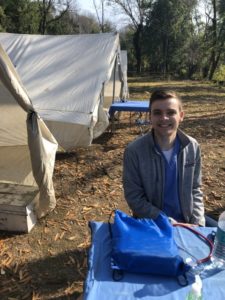 As a fourth-year medical student at Indiana University School of Medicine, I had the opportunity to participate in a medical elective in Northern India this February with the Himalayan Health Exchange (HHE). The mission of the Himalayan Health Exchange is “to provide a cross cultural learning and community service-based adventure” and “to provide a quality educational experience mixed with adventure and culture to improve local well-being.” Our expedition traveled within Himachal Pradesh to various communities in the districts of Kangra, Kullu, Mandi, and Bilaspur. We ran a total of approximately 20 days of clinic with each day located in a different small community. Many of our clinics were hosted by Tibetan Buddhist monastic schools and provided preventive care for the students.
As a fourth-year medical student at Indiana University School of Medicine, I had the opportunity to participate in a medical elective in Northern India this February with the Himalayan Health Exchange (HHE). The mission of the Himalayan Health Exchange is “to provide a cross cultural learning and community service-based adventure” and “to provide a quality educational experience mixed with adventure and culture to improve local well-being.” Our expedition traveled within Himachal Pradesh to various communities in the districts of Kangra, Kullu, Mandi, and Bilaspur. We ran a total of approximately 20 days of clinic with each day located in a different small community. Many of our clinics were hosted by Tibetan Buddhist monastic schools and provided preventive care for the students.
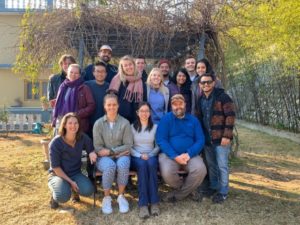 My individual role, in addition to the other twelve medical students on the expedition, was to act as a primary care provider for any community member wishing to be seen. This included every step of the patient encounter – from gathering a history to performing a physical exam to creating an assessment and plan for care. We were overseen by two American physicians from New York City and Pittsburgh and worked with interpreters from the local communities to overcome our language barriers. It was an incredible learning and service experience!
My individual role, in addition to the other twelve medical students on the expedition, was to act as a primary care provider for any community member wishing to be seen. This included every step of the patient encounter – from gathering a history to performing a physical exam to creating an assessment and plan for care. We were overseen by two American physicians from New York City and Pittsburgh and worked with interpreters from the local communities to overcome our language barriers. It was an incredible learning and service experience!
My reasons for going on this global health trip were numerous and were both personal and professional in nature. First and foremost, I have a desire to serve those less fortunate than myself. My Christian faith and desire to follow the teachings of Jesus compels me to have compassion for the underserved and to work to help them better their lives. This was the reason why I began studying medicine and drives my special interest in providing care for underserved populations. I also believe that we are global citizens and should make an effort to learn from and help our neighbors all around the globe. My own home country is very diverse, including communities of many different cultural backgrounds. This leads me to my next major reason for participating in this trip; a desire to develop increased cultural competence. Our diverse country and world include many different cultural approaches to health and healthcare. As a future primary care physician, I recognize that I will be caring for patients from all different walks of life who have different experiences, expectations, and attitudes toward health. I hoped that participating in a global health trip like this one would help me learn how to feel more comfortable and communicate more effectively in different cultural contexts.
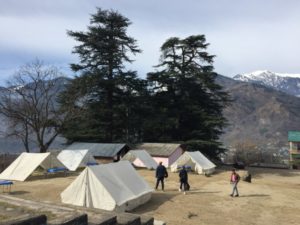 Arriving in India with these hopes and goals in mind, I had little idea of what to expect. I had traveled and lived abroad before, most notably spending three months in Peru with Goshen College’s Study-Service Term, but traveling to India felt very different. I knew no Hindi (or any other local language) and knew very little about local customs, culture, or religion. I felt outside of my comfort zone and worked to maintain a spirit of humility; I had much to learn. Indeed, the first few days of clinic raised many important questions. What did the local healthcare system look like? How accessible was it? What did it cost? How did the traditional Hindu practice of Ayurvedic medicine influence perceptions of health and healthcare decisions? How did daily work and environment affect health? Which foods are common in the local diet? How does religion influence healthcare? The list of questions seemed endless.
Arriving in India with these hopes and goals in mind, I had little idea of what to expect. I had traveled and lived abroad before, most notably spending three months in Peru with Goshen College’s Study-Service Term, but traveling to India felt very different. I knew no Hindi (or any other local language) and knew very little about local customs, culture, or religion. I felt outside of my comfort zone and worked to maintain a spirit of humility; I had much to learn. Indeed, the first few days of clinic raised many important questions. What did the local healthcare system look like? How accessible was it? What did it cost? How did the traditional Hindu practice of Ayurvedic medicine influence perceptions of health and healthcare decisions? How did daily work and environment affect health? Which foods are common in the local diet? How does religion influence healthcare? The list of questions seemed endless.
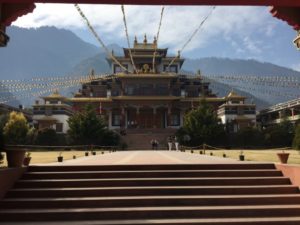 As I gained more experience and learned more, these questions were slowly answered. One of the most important things that I learned was how available and accessible the local allopathic health system is. Many of our patients had already seen a local physician about their concerns, and often they had already been provided with diagnostic testing and/or treatments. They were coming to us for a second opinion, reassurance, or both. Our main goal on the expedition was to improve long-term health of these communities, and, unfortunately, we could not provide continuity of care since we were only in each community for a few days. However, the local healthcare providers could provide this continuity. Thus, one of our most important tasks was to reinforce the health system already present. Much of our plan of care became encouraging patients to continue follow-up with their local health providers, reassuring them that they were being provided excellent care.
As I gained more experience and learned more, these questions were slowly answered. One of the most important things that I learned was how available and accessible the local allopathic health system is. Many of our patients had already seen a local physician about their concerns, and often they had already been provided with diagnostic testing and/or treatments. They were coming to us for a second opinion, reassurance, or both. Our main goal on the expedition was to improve long-term health of these communities, and, unfortunately, we could not provide continuity of care since we were only in each community for a few days. However, the local healthcare providers could provide this continuity. Thus, one of our most important tasks was to reinforce the health system already present. Much of our plan of care became encouraging patients to continue follow-up with their local health providers, reassuring them that they were being provided excellent care.
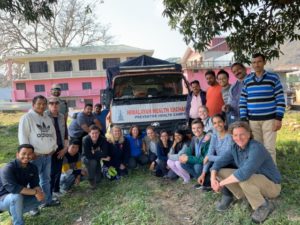 In addition to the professional growth and experiences that occurred, my personal interactions with my teammates, supervisors, support staff, and members of the local communities were incredibly fulfilling. I was amazed by the strong community orientation that permeates life in Northern India. Our clinics were very much community affairs, with patients helping each other relay their histories and avoid confusion regarding questions around translation. They all fostered incredibly kind and gracious attitudes toward us as medical providers; we felt very welcome in their communities. I also greatly enjoyed working with our local interpreters and local employees of the HHE team; they welcomed us and taught us so much. Lastly, my fellow medical students and supervising physicians were incredibly inspiring. Despite their different backgrounds and specialty interests, they all brought a sense of passion and commitment to care for the underserved. I felt a personal renewal of my own passion for medicine and a spiritual nourishment of getting to know this team and working together toward a shared goal.
In addition to the professional growth and experiences that occurred, my personal interactions with my teammates, supervisors, support staff, and members of the local communities were incredibly fulfilling. I was amazed by the strong community orientation that permeates life in Northern India. Our clinics were very much community affairs, with patients helping each other relay their histories and avoid confusion regarding questions around translation. They all fostered incredibly kind and gracious attitudes toward us as medical providers; we felt very welcome in their communities. I also greatly enjoyed working with our local interpreters and local employees of the HHE team; they welcomed us and taught us so much. Lastly, my fellow medical students and supervising physicians were incredibly inspiring. Despite their different backgrounds and specialty interests, they all brought a sense of passion and commitment to care for the underserved. I felt a personal renewal of my own passion for medicine and a spiritual nourishment of getting to know this team and working together toward a shared goal.
Overall, my month with the Himalayan Health Exchange in India was an incredible experience that I am sure I will never forget. The experiences that I’ve had and relationships that I’ve formed will stay with me long into the future. I am incredibly thankful for the support of the Mennonite Healthcare Fellowship SET program. There is so much to be learned from different cultures around the world, especially regarding attitudes toward health and healthcare, and I would encourage all students the of health sciences to participate in a similar experience.
About the author
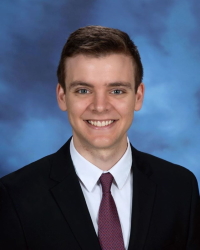 Stephen Graber was a fourth-year medical student at Indiana University School of Medicine in Indianapolis at the time of this article. Originally from Goshen, Indiana, Stephen graduated from Goshen College, Goshen, Indiana, in 2015 and then served a year in Mennonite Voluntary Service under Mennonite Mission Network in Tucson, Arizona. He plans to graduate from medical school in May 2020.
Stephen Graber was a fourth-year medical student at Indiana University School of Medicine in Indianapolis at the time of this article. Originally from Goshen, Indiana, Stephen graduated from Goshen College, Goshen, Indiana, in 2015 and then served a year in Mennonite Voluntary Service under Mennonite Mission Network in Tucson, Arizona. He plans to graduate from medical school in May 2020.
